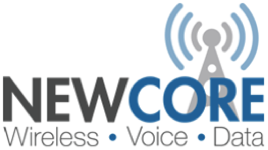During a recent family gathering in rural Minnesota, I had to take a business call on my cell phone. About two sentences into the call, it failed. I tried again. Two sentences in, nothing. My call kept dropping because I couldn’t get a strong, reliable signal. Running all over the house, I tried every room and every conceivable position until I finally found one “hot spot” where I could get and keep a signal: leaning over the back of a couch, standing on one leg with one foot by the window.
Later, I had to make another important call. Knowing the cell phone was sketchy at best, I thought I would try Skype and asked my sister-in-law if I could use her Internet.
“Sure,” she said. “We have dial-up.”
Dial up? The annoying screeching sound of dial-up reminded me of someone taking their nails and scratching them down a chalkboard. But, any port in a storm. Except this port wasn’t big enough for Skype. After 9 minutes of trying to get connected, the system simply wouldn’t let me in.
About to give up, my sister-in-law told me I might be able to get a connection. All I had to do was take my laptop and go down the road, past the mailboxes. She thought I could get Internet access there without dial up.
So I did just that. I sat in my car and got online.
I lost a lot of time – and probably suffered some brand damage – because I couldn’t get a strong, reliable signal. Now multiply my experience times millions of Americans living in rural areas and you get a sense of how inefficient and unproductive life can be without a good connection.
One can’t help but wonder how many jobs are not being created in rural areas because their area can’t access the Internet. But there is more to worry about than some businessperson not being able to make a call. Increasingly, health care is reliant on good signals, too.
One of the great heart care centers in America is the Minneapolis Heart Institute at Abbott Northwestern Hospital. If you have a heart attack or have other serious issues with your heart, there are few places to go with better survivability rates.
That is great – if you have a heart attack in Minneapolis. But what if you have a heart attack in Buffalo, Minnesota, about 40 miles west? Would you have time to get a helicopter ride to bring you to Minneapolis?
Abbott Northwestern Hospital finds that it is far better for a patient to obtain care as fast as possible. So how do they solve the distance gap? They use the Internet. The Buffalo surgery room is hooked up so the Abbott doctors in Minneapolis can actually perform the surgery on a Buffalo patient using the Internet.
Once again, when we extrapolate the impact this has, we see it can mean more people staying in their rural homes, near family, longer. Today senior citizens and others are having their vital signs checked and their health monitored over the Internet, saving them from long drives to the doctor’s office and also saving them time, money and stress.
WHAT NEXT?
Wireless access makes everything more efficient; from running businesses, to obtaining education or health care. But those in rural areas can feel as if the world is leaving them behind. The FCC estimates that about 18 million people in rural areas of the country do not have access to high-speed broadband Internet. Turning up a new wireless network is often more cost-effective solution for rural markets than a fixed broadband solution, which may require burying 100s of miles of fiber in the ground.
Yes, there are wireless technology providers focusing on extending next generation communications service to rural areas, a market often overlooked by large service providers. And yes, we are all trying to work together to increase the ability to serve underserved communities. Partnering together, we can make it possible for local and regional network operators to leverage next generation technologies without having to bear the full cost of building out the expensive infrastructures.
But obviously, change is slow. We are a wireless nation and we depend on technology to meet our safety, personal and business needs. Let’s work harder to stop the annoying screeching sound of dial-up heard across rural America. Rural America deserves better.
Cami Zimmer
Director of Business Development
NewCore Wireless
952-239-9822 cami.zimmer@newcorewireless.net
www.newcorewireless.net @NewCoreWireless
Cami Zimmer is the Director of Business Development at NewCore Wireless (www.newcorewireless.net), a wireless technology provider. Having spent 12 years concentrating on public policy issues, Zimmer has focused the last seven years in PR, marketing and technology sales/business development.

